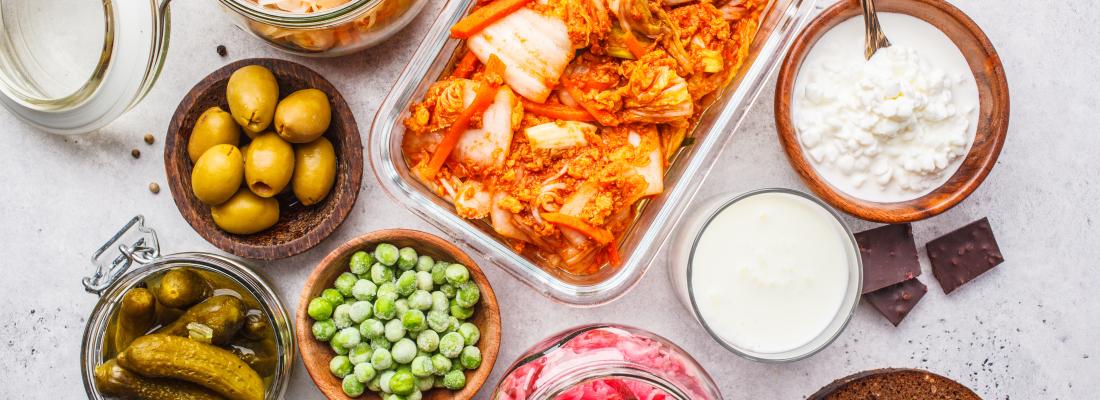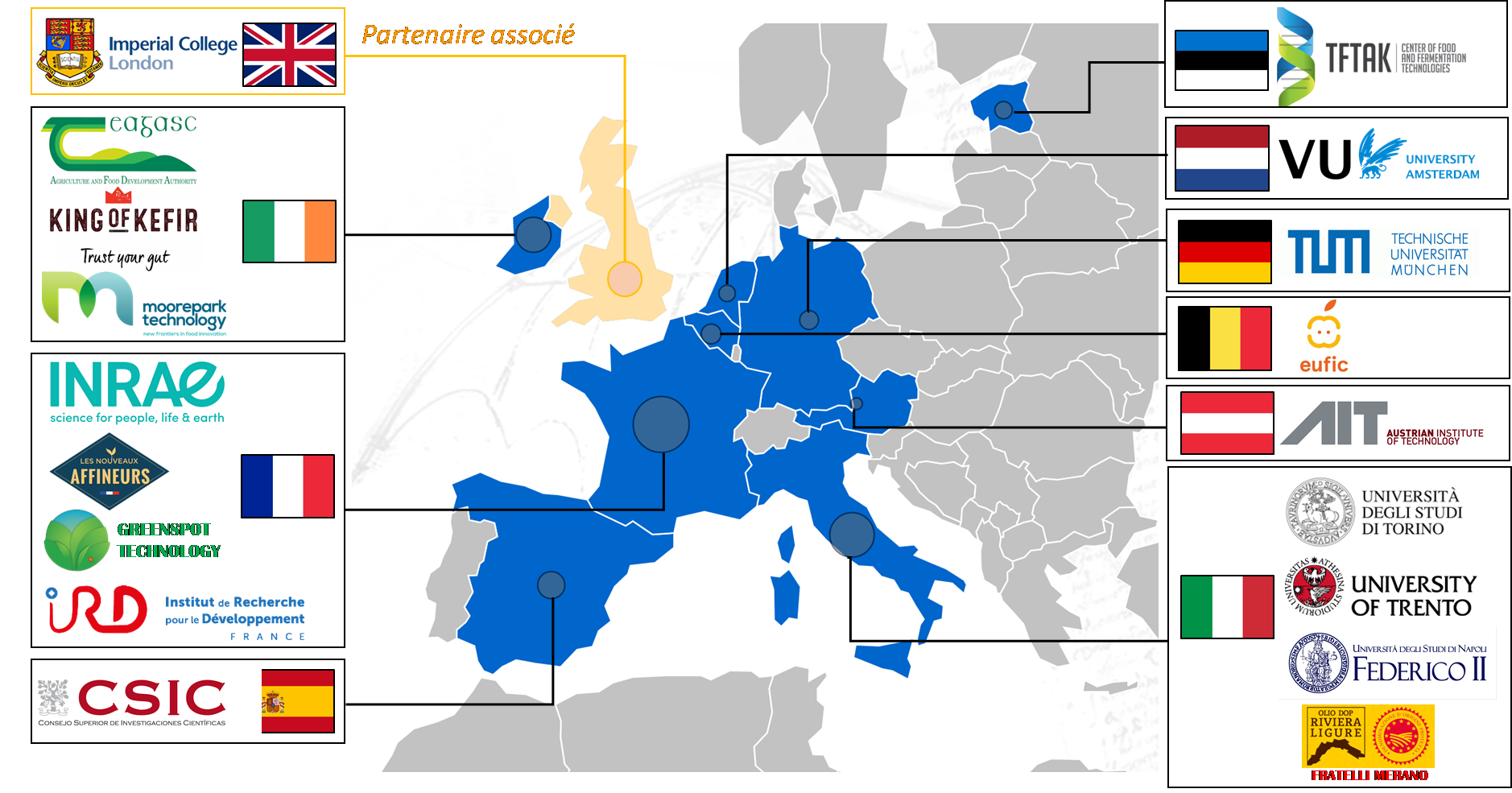Food, Global Health Reading time 5 min
DOMINO: a European research project on the role of the diversity of fermented food microbiota on health
Published on 07 November 2022

Fermented foods are an important part of people’s diets. They contain a great diversity of microbiota (assemblies of different interacting microbial species) that improve the preservation of foods, produce a particular character or quality and a range of tastes, and boost nutritional value.
Microbial biodiversity for healthy and sustainable food
Recent scientific research suggests that a diet that includes fermented foods could have a beneficial effect on health thanks to a series of interrelated effects (e.g. interaction with the intestinal microbiota; nutritional added value of the food; and molecules resulting from fermentation potentially stimulating physiological signals). This domino effect makes it possible to identify three issues at the heart of the DOMINO project: Can we define microbial solutions based on biodiversity to respond to the sustainable production of fermented foods (fermentation of plant-based food)? Does the frequent consumption of fermented foods impact health by stimulating the symbiotic relationship between humans and their gut microbiota? What experimental methodologies would be most suitable to address these two issues and ensure a rapid and reliable estimation of the benefits and risks of a novel fermented food based on more sustainable food resources?
The DOMINO project, slated to start in March 2023 for five years, has six scientific goals:
1. Cross-reference and compare data on the food and gut microbiome (diversity, functional activities) with that of human physiology and metabolism to allow for a more relevant identification of biomarkers related to the health effect of fermented foods. In particular, the project will launch a long-term (six months) nutritional study in three European geographical locations (UK, France, Italy).
2. Design tailored microbial consortia by taking advantage of the high natural diversity of food microbiota to go beyond the canonical concept of probiotic microbial strains.
3. Put computational biology and modelling at the heart of the knowledge acquisition process. Make data and tools available to the scientific community to better highlight and support microbial functional biodiversity in food design.
4. Bring the discipline of food microbiology to a new level by using multidisciplinary synthetic ecology approaches.
5. Use ex vivo models for rapid and standardised protocols for assessing the health benefits/risks of fermented foods.
6. Drive the development of plant-based fermented products to meet the combined needs of society’s food transition and the urgency of sustainability of the food system and create a robust market for small European businesses. To meet this objective, the project will launch, for the first time, living labs in six different European cultural areas (Estonia/Baltic countries; France; Italy; Spain; Germany/Austria; Ireland/UK). These living labs will lead to a new vision of the future of fermented foods in Europe while building people's confidence in healthy food by involving them in the process and taking their opinions into account.
A European interdisciplinary consortium of excellence

Under the coordination of the Micalis Institute at INRAE Jouy-en-Josas, five other INRAE units in association with AgroParisTech and the CRNH Auvergne [the Human Nutrition Unit in Theix, the Cheese Research Unit in Aurillac, the Mycology and Food Safety Unit in Bordeaux, the Sayfood Unit (Paris-Saclay Food & Bioproduct Engineering) and the MaIAGE unit (Mathematics and Computer Science Applied to the Genome and the Environment)] will join hands with some 20 partners from ten European countries in order to come up with a highly interdisciplinary scientific programme and create a common thread between microbial ecology, human nutrition, food process engineering, "omics" data modelling, consumer social sciences, food systems economics and participatory co-creation.
The European DOMINO project at a glance
Duration: 5 years (2023-2028)
Budget: €12M (€10.8M Research European Agency + €1.2M UK Research Innovation)
Number of countries: 10
Number of partners: 18 (including 12 academic partners, 2 technology clusters and 4 SMEs/start-ups)
Number of living labs: 6
